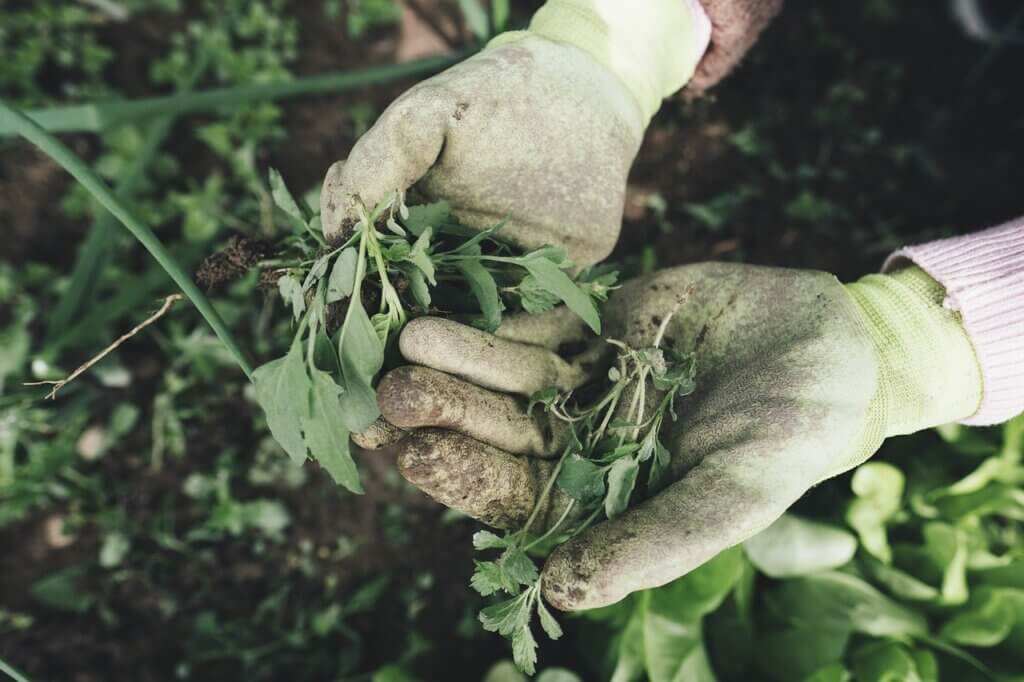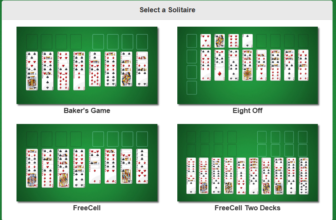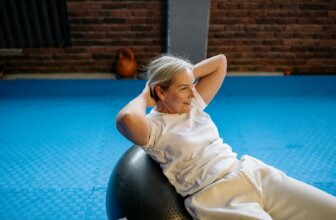Thanks for finding our easy gardening for seniors, top tips article!
Gardening can be a wonderful hobby for seniors, providing joy and numerous health benefits. Easy gardening allows older adults to enjoy the outdoors, stay active, and connect with nature without feeling overwhelmed. With the right tools and techniques, gardening can be a relaxing and rewarding experience.

Choosing the right type of garden to suit individual needs is important. Raised beds or container gardening can make it easier for seniors to reach plants and care for them without excessive bending or stretching. Simple tools designed for ease of use can also enhance the gardening experience, promoting independence and confidence.
Although this article is based on our experience and extensive research, we need to make the following disclaimer!
This article offers experienced and well-researched information but isn’t a substitute for medical advice. Consult your healthcare provider for personal guidance.
For those interested in finding other enjoyable hobbies, exploring easy gardening can lead to a fulfilling way to spend time. To discover more ideal activities, check out our article on the 8 best hobbies for retirees. Some of these might surprise you!
Key Takeaways
- Easy gardening promotes health and physical activity.
- Choosing accessible tools makes gardening easier for seniors.
- Engaging in gardening offers mental and emotional benefits.
Choosing the Right Garden Type
How about a vegetable garden? Check out this video!
Selecting the appropriate garden type can make gardening enjoyable and accessible for seniors. When choosing the right setup, it is essential to consider factors like strength, balance, and mobility.
Raised Bed Gardening
Raised bed gardening is a great option for seniors. These beds are elevated off the ground, allowing for easier access without bending over. They can be built at a height that suits individual needs, reducing strain on the back and knees.
Benefits:
- Accessibility: Easier to reach plants.
- Soil Control: Allows for better soil quality and drainage.
- Pest Control: Keeps some pests away from plants.
To build a raised bed, select a sturdy material like wood and fill it with quality soil. Seniors can also consider pre-made raised garden beds for convenience.
Container and Vertical Gardening
Container gardening uses pots or bins to grow plants. This method is suitable for those with limited space or mobility. Containers can be placed on tables or stands, allowing for easier access.
Tips for Container Gardening:
- Choose lightweight containers for easy movement.
- Use good potting soil to help plants thrive.
- Select plants that grow well in containers, like herbs and small vegetables.
Vertical gardening is another excellent choice. It involves growing plants upward on walls or trellises. This method saves space and makes it easier to care for plants without bending down.
Indoor Gardening Basics
Indoor gardening is perfect for seniors who want to enjoy plants year-round. It provides a way to care for plants without worrying about harsh outdoor conditions.
Key Indoor Gardening Tips:
- Light: Place plants near windows for natural light or use grow lights.
- Watering: Use pots with drainage holes and avoid over-watering.
- Plants: Choose low-maintenance indoor plants like pothos or snake plants.
Indoor gardening can be a soothing hobby that enhances living spaces and improves air quality. It’s an excellent option for anyone, regardless of garden space.
Gardening Tools and Accessibility
No easy gardening for seniors guide would be complete with a word about tools! Some great advice here:
Gardening can be a joyful activity for seniors when they use the right tools. Accessibility is crucial, especially for those with limited strength or mobility. Focus on ergonomic designs and maintenance for a pleasant gardening experience.
Ergonomic Tools for Seniors
Ergonomic gardening tools are designed to be easy on the hands and body. They often feature:
- Soft grips: Cushioned handles help reduce strain.
- Lightweight materials: Tools made from lighter materials are easier to handle.
- Adjustable lengths: Some tools can be extended or shortened for comfort.
Using these tools can make it easier for seniors to dig, plant, and weed. For individuals dealing with dementia, familiar tools can provide comfort and a sense of normalcy. Familiarity can lead to positive feelings while gardening, keeping the mind engaged.
Garden Tool Maintenance
Keeping tools in good shape is important for safety and ease of use. Here are some simple maintenance tips:
- Clean tools after each use to remove dirt and debris.
- Sharpen blades regularly for efficient cutting.
- Check handles for damage to prevent slipping.
Regular maintenance can help prevent injuries and make gardening simpler. Seniors may also benefit from tool organization. Keeping tools in one place makes it easier to find them, reducing frustration and helping them enjoy their time outdoors.
Health Benefits and Safety Tips
Probably the only time we’ve enjoyed talking about Health & Safety!
Gardening offers many advantages for seniors, promoting both physical and mental health. It also comes with safety tips to ensure enjoyable and secure gardening experiences.
Physical Health and Exercise
Gardening is a great way for seniors to engage in physical activity. Simple tasks like planting, weeding, and watering can enhance strength and balance.
These activities help improve flexibility and can reduce the risks of falls. Regular movement in the garden also boosts circulation and promotes cardiovascular health.
Seniors can focus on easy gardening techniques. Raised beds or pots are ideal as they reduce bending and reaching. Using ergonomic tools can minimize strain on the hands and wrists.
Mental Well-being and Stimulation
Gardening provides excellent mental stimulation. It keeps the mind active by requiring planning and problem-solving, which can help fight off conditions like dementia.
Spending time in a garden offers sensory experiences. The colors and smells of plants can lift moods and reduce feelings of anxiety.
Additionally, nurturing plants fosters a sense of accomplishment. Watching something grow brings joy and satisfaction to seniors, reinforcing their connection to nature and life.
Safety Measures and Tips
Safety is crucial for seniors while gardening. To prevent accidents, it’s important to wear proper footwear with a good grip to avoid slips and falls.
Using gloves protects hands from cuts and irritations. It’s also wise to take breaks and stay hydrated to avoid exhaustion.
Keeping tools nearby and in good condition is essential. Seniors should choose tools that are lightweight and easy to handle. Community gardening groups can offer support and shared resources for a safer experience.
Easy Gardening for Seniors – Summary
Gardening can be a rewarding activity for seniors. It allows them to enjoy nature and stay active.
Choosing the right plants is important. Low-maintenance plants like herbs, perennials, and native species are great options. These require less care and are easy to grow.
Tools can make a big difference. Seniors should consider using:
- Ergonomic tools that are easy to grip
- Raised beds to reduce bending
- Kneelers for comfort while planting
Planning is key. Container gardening can help save space. It also allows for gardening on patios or balconies.
Watering and weeding are easier with a set schedule. A watering can with a long spout or a soaker hose can simplify the process. Involving others can also enhance the experience. Family and friends can join the fun, making it a social activity.
Easy Gardening for Seniors – Last Word!
Gardening can also bring joy and relaxation.
Spending time outdoors can lift spirits and improve well-being. With the right approach, gardening can be easy and enjoyable for seniors. Win-Win!
Don’t feel like you’re fit enough to start (or continue) gardening? You might like our article on Good Exercise for Seniors!






